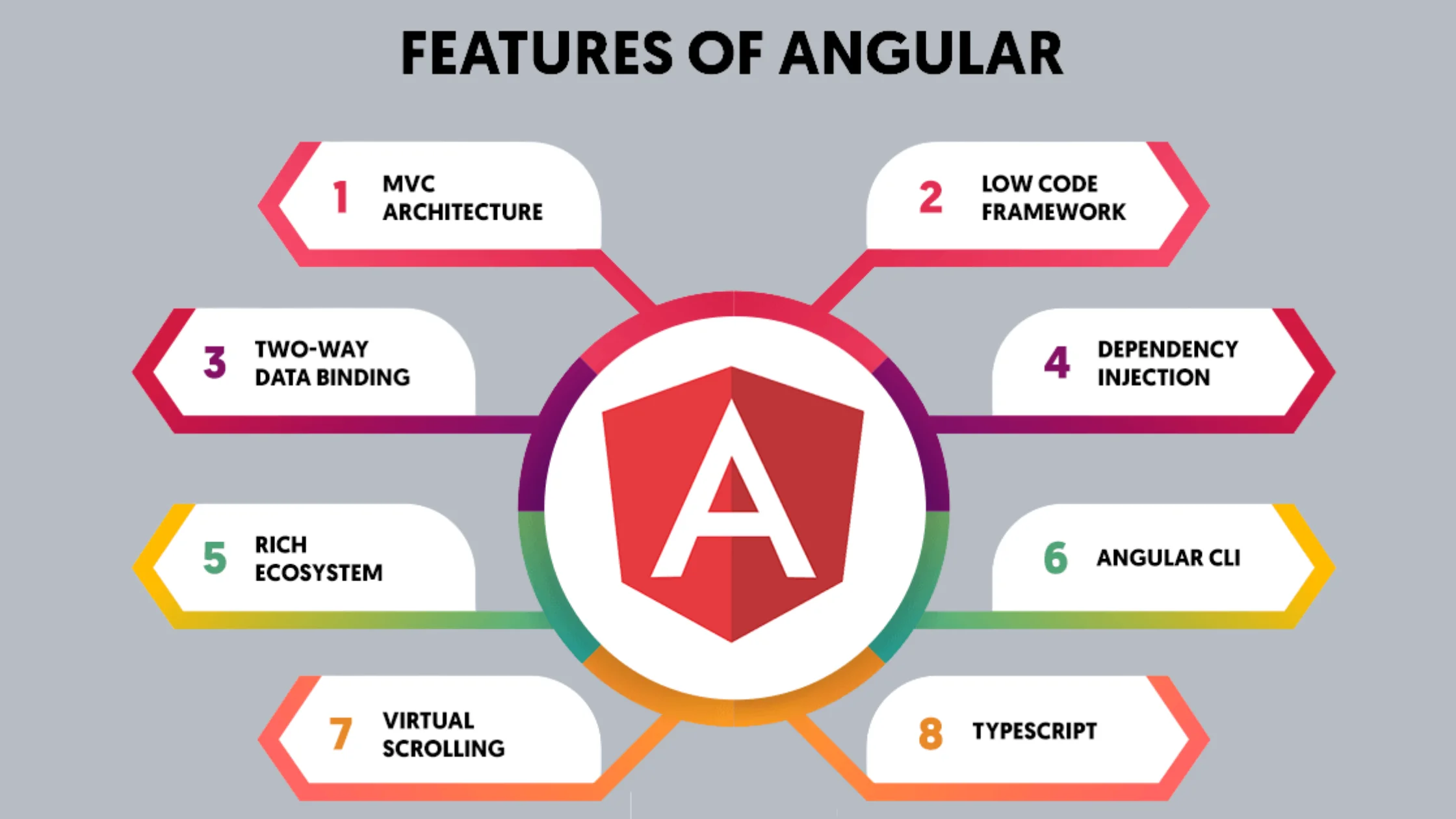
Angular for Mobile App Development: The Ultimate Guide
To effectively reach and engage a global audience in today’s market, a business needs a strong mobile presence. The foundation of any successful app is the technology behind it. For developers and businesses alike, leveraging Angular for mobile app development offers a proven path to creating high-quality, cross-platform applications. Its powerful suite of tools and features ensures the delivery of scalable, high-performance, and stable apps that users can rely on.
In this blog, we’ll explore what makes Angular a top preference, its functions, advantages, forms of apps you can construct, challenges, and the way Desun Technology lets you create extraordinary mobile programs that meet your enterprise desires.
How Angular is Used for Mobile App Development
Angular mobile app development leverages the Angular framework, an open-source JavaScript platform developed by Google to create sophisticated mobile programs. By integrating with equipment like Ionic and NativeScript, builders can construct hybrid apps that experience and perform like native apps across both iOS and Android.
With Angular’s modular shape, developers can reuse code, resulting in a single codebase that works across platforms. This not only reduces development time by up to 50% but also lowers renovation prices by 30%. Whether you are an entrepreneur aiming to release a startup or a company looking for stable, scalable apps, Angular offers an efficient and cost-effective development direction.
Why Choose Angular for Mobile App Development?

When selecting a framework, you want one that simplifies improvement, reduces cost, and scales with your business. Angular’s robust capabilities, seamless integrations, and lively community aid make it one of the pleasant alternatives for mobile app development.
Cross-Platform Development: A Time-Saving Advantage
Using Angular with gear like Ionic or NativeScript enables builders to write code once and deploy it on both Android and iOS platforms. This technique gets rid of the need for separate groups and ensures faster time-to-market.
Key benefits:
- ✅ Reduced development time
- ✅ Lower charges
- ✅ Simultaneous updates across structures
Modular Structure: A Well-Organized Approach
Angular’s architecture divides the utility into modules, making it clean to keep and scale. Developers can replace character elements without affecting the complete system, enhancing productivity and streamlining teamwork.
Performance and Speed: A Key Advantage
Performance is vital in mobile apps, and Angular provides this via the use of lazy loading and Ahead-of-Time (AOT) compilation. Lazy loading guarantees that the simplest required components are loaded, whilst AOT compiles templates into green JavaScript before runtime, making it quicker to render and smaller bundles.
Best practices include:
- ✅ Code splitting
- ✅ Minimizing HTTP requests
- ✅ Optimizing images and assets
Two-Way Data Binding: A Synchronized Approach
Angular’s two-way data binding keeps the user interface and underlying records version in sync in real time. Any changes made by the person are reflected immediately, and backend records updates straight away influence the UI, resulting in a smooth user experience.
Key Features of Angular for Mobile App Development

Angular’s particular set of functions enhances its suitability for mobile apps, ensuring scalability, maintainability, and excellent overall performance. These competencies not only streamline the development process but also assist developers in creating steady, efficient, and adaptable programs. By leveraging these functions, companies can construct apps that offer seamless consumer stories and stay clean to replace and hold over time, making Angular a perfect choice for both startups and massive organization.
Component-Based Architecture
Angular’s modular layout permits developers to build reusable UI components like buttons, forms, and dashboards. This reduces redundancy and quickens app improvement. Developers can effortlessly manage and replace precise elements without affecting the whole utility, ensuring steady performance throughout the platform.
Built-In Testing Tools
Angular gives tools for unit testing, integration testing, and cease-to-give-up trying out. These ensure that apps are robust and bugs are caught early at some stage in development, improving reliability. Automated assessments additionally enhance lengthy-time period maintainability and reduce troubleshooting efforts.
TypeScript and Static Typing
TypeScript adds static typing to JavaScript, assisting builders in spotting errors throughout coding in place of at runtime. This feature supports massive-scale projects and fosters purifier, more maintainable code. It additionally allows for improved collaboration by using clearer code systems and lowering potential bugs.
State Management with RxJS and NgRx
Angular’s integration with RxJS and NgRx permits efficient state management. This guarantees that app interactions are steady, supporting builders in creating responsive and scalable programs. Effective nation control contributes to clean user experiences even in complicated workflows.
What Types of Mobile Apps Can You Create with Angular?

Angular’s versatility permits builders to construct an extensive range of programs perfect for one-of-a-kind industries and user wishes. From light-weight apps for startups to characteristic-rich answers for businesses, Angular presents the equipment and structure needed to create scalable, high-performance packages. By leveraging its modularity and move-platform guide, businesses can cope with various requirements while optimizing improvement time and prices.
Single-Page Applications (SPA)
SPAs supply a seamless experience by updating content dynamically without reloading pages. Angular’s routing and lazy loading decorate the overall performance and responsiveness of such apps. These applications are perfect for platforms like news sites, social media apps, and dashboards, wherein rapid interplay and minimum downtime are crucial for consumer engagement.
Progressive Web Applications (PWA)
PWAs offer offline get admission to, push notifications, and rapid load instances. They are ideal for companies aiming to offer a close-to-local experience in the use of web technology. With Angular’s green caching techniques and provider employees, PWAs supply advanced performance even in low-connectivity environments, making them relatively person-friendly.
Hybrid Mobile Apps
By pairing Angular with Ionic or NativeScript, builders create apps that feel native whilst sharing code throughout structures, lowering development effort. These apps allow groups to speedily release on more than one device without preserving separate codebases, making them cost-effective and easier to maintain.
Enterprise Applications
Angular is best for complicated apps utilized by large corporations. Its architecture supports steady logins, facts-heavy workflows, and seamless integration. Organizations can construct scalable answers like CRM structures, economic structures, and delivery chain control apps at the same time while ensuring data consistency and overall performance under heavy loads.
Admin Dashboards & Customer Portals
Angular’s information-coping with competencies make it perfect for apps that require real-time updates and dynamic user interfaces. From monitoring analytics to coping with personal interactions, Angular’s built-in gear helps builders create interactive and responsive dashboards that beautify decision-making and improve customer engagement.
Benefits of Angular for Mobile App Development
Angular offers numerous blessings that make it a favored choice for constructing efficient, scalable, and stable mobile applications. Its layout principles and surroundings support developers at some stage in the app improvement lifecycle, helping corporations release brilliant apps quickly and with greater reliability.
Reusable Components
Angular’s modular approach lets developers reuse components throughout projects, which saves time and guarantees consistency. By constructing additives like buttons, forms, and navigation menus as soon as possible, builders can apply them across different sections of the app or even in other projects, decreasing redundancy and enhancing maintainability.
Rich User Interface
With functions like manner statistics binding and event managing, builders can create interactive, consumer-pleasant interfaces that keep users engaged. Angular’s shape permits seamless data updates between the UI and backend, permitting dynamic content rendering that improves the user’s enjoyment without the need for complex scripting.
Security Features
Angular’s built-in safety features defend apps from commonplace vulnerabilities like move-website scripting (XSS) and cross-site request forgery (CSRF). Developers can implement safeguards like input validation, path guards, and stable information transmission to ensure that sensitive information is constantly protected, making Angular a reliable framework for mission-critical applications.
Community Support
A massive network of developers presents vast assets like tutorials, forums, and tools, making sure assistance is constantly available. Whether you are fixing a coding problem, exploring new functionalities, or gaining knowledge of satisfactory practices, Angular’s active environment makes improvement smoother and extra green for groups of all sizes.
Easy Integration
Angular integrates smoothly with third-party tools, enabling developers to enhance functionality with analytics, maps, or push notifications. Its compatibility with libraries like Ionic, NativeScript, and Firebase ensures that developers can expand app capabilities without compromising overall performance, delivering more value to users.
Challenges in Angular Mobile App Development
Despite its many advantages, Angular presents some demanding situations that builders and businesses should be aware of before choosing it for his or her mobile app projects. Understanding those hurdles helps teams plan higher, undertake exceptional practices, and leverage expert assistance to conquer them efficiently.
Steep learning curve for beginners
Angular’s architecture introduces superior principles like dependency injection, TypeScript utilization, and aspect lifecycles, which may be overwhelming for developers new to the framework. Beginners often need overtime and schooling to grow to be talented, making it important for teams to put money into the right onboarding or work with skilled developers at some stage in the initial levels of the challenge.
Larger bundle sizes are affecting load times
Angular apps generally tend to have larger package sizes because of boilerplate code and complete libraries covered within the framework. Larger files can gradually download in instances, especially on low-end devices or networks with restricted bandwidth. Developers want to apply optimization strategies, including lazy loading, code splitting, and tree shaking, to limit the very last app length and ensure clean performance.
Performance overhead in complex apps
Two-way data binding and dynamic DOM manipulation, while beneficial, can add overall performance overhead in apps with complicated interfaces or heavy real-time interactions. Without cautious coding and optimization, this may cause slower responsiveness and longer rendering instances. Developers need to put into effect nice practices like minimizing watchers, lowering needless alternate detection cycles, and the usage of OnPush strategies to improve performance.
Integration issues with native features
Accessing tool-unique functionalities like digital camera, GPS, or biometric sensors isn’t possible with Angular alone. Developers often need to depend on frameworks like Ionic or NativeScript to bridge this hole. Even with such equipment, platform-unique quirks and version mismatches may require additional coding effort and testing to ensure compatibility across gadgets.
Need for third-party libraries to access certain device functionalities
While Angular gives a stable center framework, sure mobile-unique functions aren’t to be had out of the box. Developers want to integrate third-party libraries for functionalities along with push notifications, real-time verbal exchange, or advanced animations. Ensuring those libraries work seamlessly with Angular’s structure requires thorough testing, model control, and, on occasion, custom development to fulfill unique assignment requirements.
How Desun Technology Can Help You Build Powerful Angular Mobile Apps
At Desun Technology, we are obsessed with assisting groups construct great Mobile packages using Angular. Whether you are developing an app for Android, iOS, or both, our crew of experts is ready with the understanding and equipment to make certain your app meets the very best standards.
Top Mobile App Experts
You can rent our mobile app builders full-time, hourly, or on a project basis. We combine seamlessly with your group, ensuring transparency, timely transport, and technical information at every stage.
Native and Cross-Platform Solutions
We concentrate on developing both native and hybrid apps using Angular, integrated with frameworks like Ionic and NativeScript. Our solutions are designed to provide the most advantageous overall performance across all devices.
End-to-End Support
From ideation to deployment, our group assists you at every step. We assist in picking out the right technology stack, design attractive interfaces, behavior rigorous testing, and provide post-release support.
Seamless Integration
Our builders make sure your app integrates smoothly with your present ecosystem, delivering scalable and steady solutions tailor-made to your business needs.
Available 12/7 for Consultation
We partner with you from the start. Through collaborative discussions, we help refine your vision, prototype your app in real-time, and provide expert advice to create cutting-edge solutions.
Trusted by Leading Brands
With a proven track record and hundreds of successful initiatives, Desun Technology stands as a reliable accomplice in mobile app development. Whether you want a web app, SaaS platform, or corporate solution, we supply apps that your users love.
Conclusion
Angular for mobile app development empowers organizations to construct scalable, excessive-overall performance, and stable apps that meet the demands of contemporary customers. Despite demanding situations like a steep gaining knowledge of curves and large package sizes, its benefits—inclusive of reusable components, move-platform compatibility, and robust testing equipment—make it a favored choice for builders worldwide.
By partnering with skilled groups like Desun Technology, you could conquer technical hurdles and gain recognition for bringing over the price to your clients. Whether you are building an MVP or scaling an organization’s solution, Angular presents the foundation for fulfillment.









